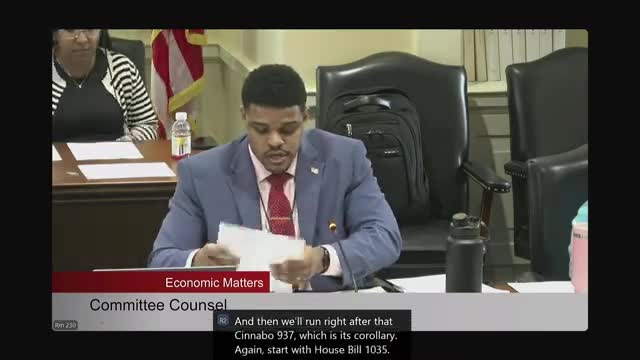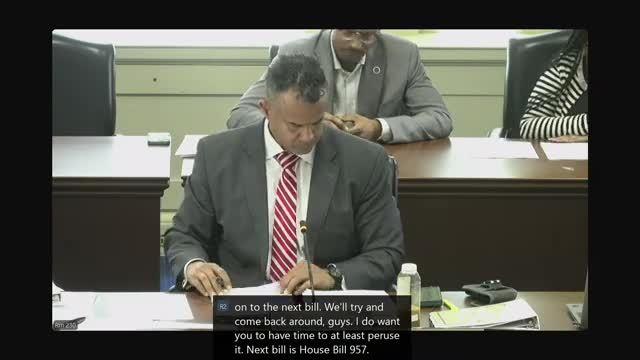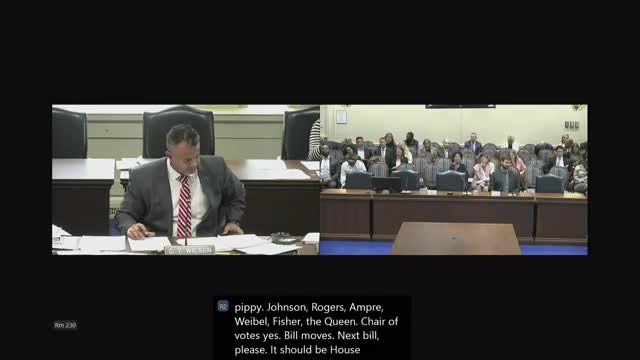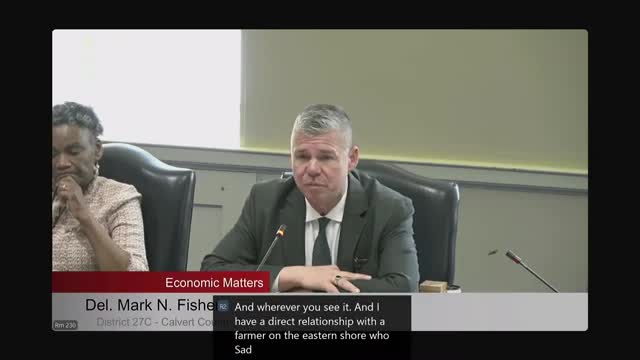Article not found
This article is no longer available. But don't worry—we've gathered other articles that discuss the same topic.

Votes at a glance: Economic Matters Committee actions (selected)

Committee approves apprenticeship residency requirement on state contracts with modifications

Committee amends and advances bill renaming RPS to clean energy standard and adding nuclear for accounting

Panel backs creation of energy planning office to draft risk reports and model future scenarios

Committee advances solar siting bill after contentious debate over farmland carve‑outs and 5% threshold

